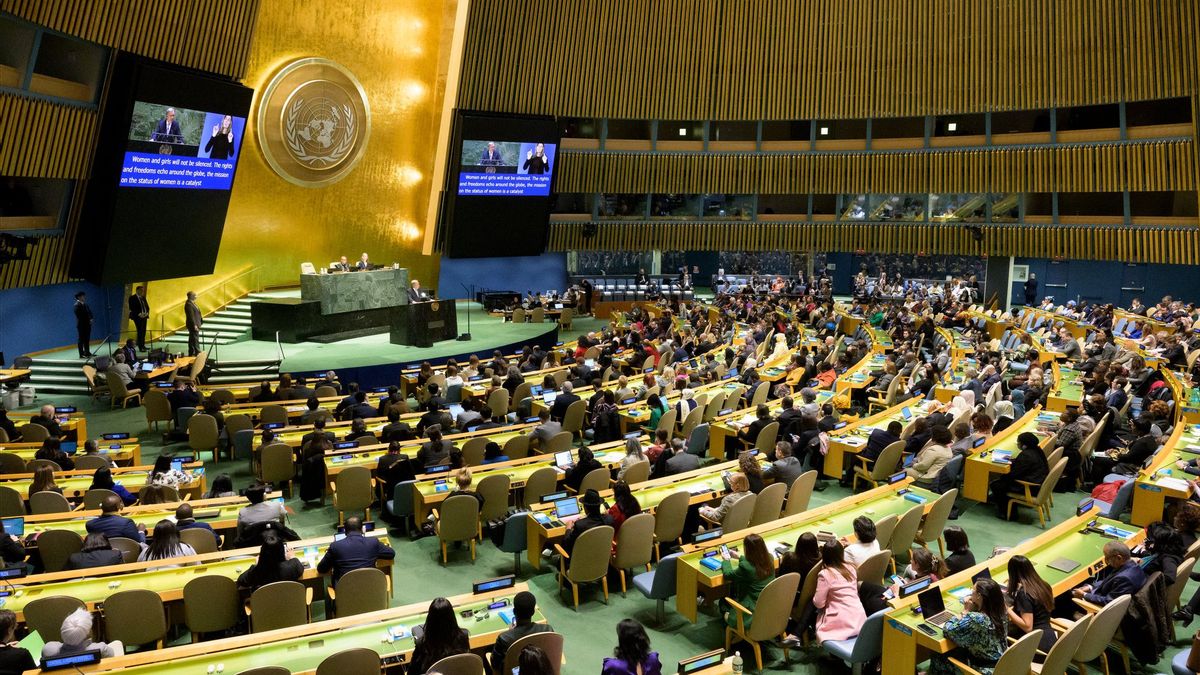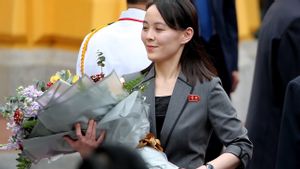JAKARTA - UN Secretary-General Antonio Guterres told the agency's 193 member countries on Monday, progress on women's rights is "disappearing before our eyes".
In the opening session of the 67th Session of the Commission on the Status of Women (CSW), the UN's largest meeting on women's empowerment, the UN Secretary-General stressed, "gender equality is going even further".
"On the current track, UN Women will need another 300 years," he said, citing The National News, March 7.
"Women's rights are abused, threatened, and violated around the world," he continued.
Furthermore, Guterres spoke of the Taliban's restrictions on Afghanistan, where "women and girls have been removed from public life".
Without identifying the country, she stressed that in "many places, women's sexual and reproductive rights are canceled, while girls who go to school are at risk of being abducted and assaulted".
Guterres also did not mention Iran, despite the country's brutal crackdown on protests calling for justice for Mahsa Amini, who died in police custody in September last year.
Iran was removed from the commission in December by a US-led resolution, which received 29 votes for and eight against, with 16 countries abstaining.
Women & girls will not be silenced.
Their demands for their rights & freedoms echo around the globe.
At #CSW67 today I said loud and clear: the @UN stands with women & girls everywhere. pic.twitter.com/hWqn3gdyYN
— António Guterres (@antonioguterres) March 6, 2023
Iran's first female vice president after the revolution, Massoumeh Ebtekar, who also addressed the General Assembly on Monday, said Iran's expulsion from the commission was a "dangerous and inappropriate" procedure that had "no legal justification", "based on lies and pressure from the powers that be." hegemony and hype created by the hired media, with the purely political aim of isolating Iran".
"The bitter irony of this story is that some of the countries that push this issue have the highest numbers of women killed or imprisoned, especially among people of color," explained Ebtekar.
During its two-week session, the Commission on the Status of Women focuses on closing the gender gap in technology and innovation.
The UN secretary-general said this topic was especially timely as women and girls were left behind as technology advanced.
"Century centuries of patriarchy, discrimination, and harmful stereotypes have created a huge gender gap in science and technology," he said.
Furthermore, Guterres said women represent only three percent of Nobel prize winners in the field.
Meanwhile, Sima Bahous, executive director of UN Women, said gender equality cannot be achieved without closing the digital divide.
VOIR éGALEMENT:
"We live in a polycrisis world where progress is increasingly uneven, including in the digital space, creating new and unique barriers for women and girls," she explained.
Afghan women speaking via YouTube and blogs, he continued, had their doors marked by the Taliban, with many leaving their countries for safety.
Meanwhile in Iran, many women and girls continue to be targeted because they take part in online campaigns, said Bahous.
"Women's rights activists cannot play their role in advancing equality if they fear reprisals. They become invisible," she explains.
He added that, when used effectively, technology and innovation can be a "game changer."
The English, Chinese, Japanese, Arabic, and French versions are automatically generated by the AI. So there may still be inaccuracies in translating, please always see Indonesian as our main language. (system supported by DigitalSiber.id)
















